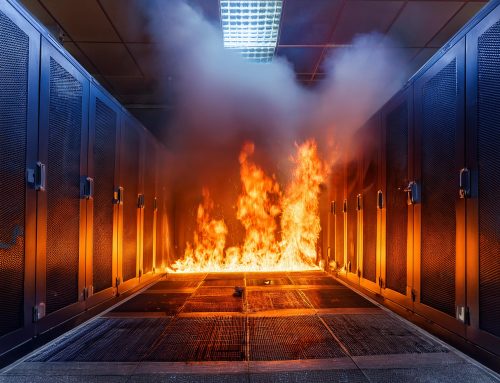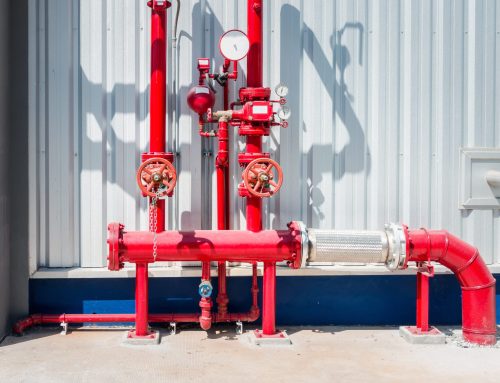When it comes to protecting your business from fire hazards, a well-designed fire sprinkler system is essential. Understanding how fire protection professionals design these systems can provide peace of mind and ensure that your property, employees, and customers are safe. Learn more about the considerations, reasons for designing, steps involved, and tips for hiring a professional to design a fire sprinkler system for your building.
Why is a Fire Sprinkler System Essential?
Fire sprinkler systems are designed to detect and suppress fires at their early stages, often before the fire department arrives. In many cases, a well-maintained fire sprinkler system can prevent significant damage, saving lives and protecting property.
In Georgia, like many other states, building codes and fire regulations mandate the installation of fire sprinkler systems in various types of buildings, including commercial properties, schools, healthcare facilities, and more. Even if your building is not legally required to have a sprinkler system, installing one is a proactive measure that can reduce your insurance premiums and provide a safer environment for everyone inside.
Key Considerations in Designing a Fire Sprinkler System
Designing a fire sprinkler system is a complex process that requires careful consideration of several factors. Fire protection professionals take the following into account when designing a system:
- Building occupancy and use:
- The type of occupancy (e.g., office, retail, warehouse, manufacturing) affects the fire hazards present and, therefore, the type of sprinkler system needed. Different spaces require different levels of protection based on the activities that occur within them.
- Building layout and size:
- The size and layout of the building, including the number of floors, ceiling height, and room configurations, influence the design of the sprinkler system. Fire protection professionals must ensure all areas of the building are adequately covered.
- Fire hazards:
- Understanding the specific fire hazards within the building is crucial. For example, a kitchen in a restaurant poses a higher fire risk than an office space. Professionals will assess the types of materials used, such as flammable liquids or chemicals, which may require specialized sprinkler heads or systems.
- Water supply:
- The availability and pressure of the water supply are critical factors in designing a fire sprinkler system. The system must be able to deliver sufficient water to suppress a fire effectively. In some cases, a fire pump may be needed to boost water pressure.
- Local building codes and regulations:
- Compliance with Georgia’s building codes, fire codes, and any local ordinances is non-negotiable. Fire protection professionals must design systems that meet all regulatory requirements, ensuring the safety and legal compliance of your business.
- System type:
- There are different types of fire sprinkler systems, including wet pipe, dry pipe, pre-action, and deluge systems. The choice of system depends on the building’s use, the climate, and the specific fire hazards identified during the assessment.
Steps Fire Protection Professionals Take to Design a Fire Sprinkler System
Designing a fire sprinkler system involves several key steps. Fire protection professionals typically follow a structured process to ensure that the system is tailored to the building’s needs and meets all regulatory standards.
- Initial assessment and consultation:
- The process begins with an initial assessment of the building. Fire protection professionals will visit your site to evaluate the layout, occupancy, fire hazards, and existing fire protection measures. This consultation helps them understand your specific needs and any potential challenges.
- Code compliance review:
- Before starting the design, professionals will review all relevant building codes, fire codes, and local regulations. In Georgia, this includes the Georgia State Minimum Standard Fire Code and any local amendments which ensures the design will meet all legal requirements.
- Fire hazard analysis:
- A thorough analysis of the fire hazards within the building is conducted, which involves identifying areas of higher risk, such as kitchens, storage areas, or areas where flammable materials are used or stored. The analysis helps determine the type of sprinkler heads and system design needed.
- Water supply evaluation:
- The available water supply is evaluated to ensure it can support the sprinkler system. This includes checking the water pressure and flow rate. If the existing supply is inadequate, additional measures like installing a fire pump or water storage tank may be recommended.
- System design:
- Using specialized software, fire protection professionals create a detailed design of the fire sprinkler system. The design includes the placement of sprinkler heads, piping, control valves, and other components and is tailored to the specific layout of the building and the identified fire hazards.
- Hydraulic calculations:
- Hydraulic calculations are performed to ensure that the system will deliver the required amount of water to each sprinkler head, even in the most challenging conditions. These calculations are crucial for ensuring the system’s effectiveness in suppressing a fire.
- Review and approval:
- The completed design is reviewed for accuracy and compliance with all relevant codes. It is then submitted to local fire authorities for approval. In Georgia, this may involve submitting plans to the local fire marshal or building department.
- Installation and testing:
- Once the design is approved, the installation process begins. Licensed professionals install the system according to the design specifications. After installation, the system is thoroughly tested to ensure it operates correctly and meets all performance standards.
Tips for Business Owners: Hiring a Fire Protection Professional
When hiring a fire protection professional to design a fire sprinkler system for your building, consider the following:
- Verify credentials:
- Make sure that the company you hire is licensed and certified to design and install fire sprinkler systems in Georgia. Check their experience and ask for references from previous clients.
- Understand the costs:
- Ask for a detailed cost estimate before work begins. The estimate should include design, installation, testing, and any additional components like fire pumps or water storage tanks.
- Prioritize communication:
- Effective communication is key to a successful project. Choose a fire protection company who is responsive and willing to explain the design process, answer your questions, and keep you informed at every stage.
- Check for compliance:
- Make sure that the design meets all relevant codes and regulations. Ask the professional to provide documentation showing that the system complies with Georgia’s fire safety requirements.
- Plan for maintenance:
- A fire sprinkler system requires regular maintenance to ensure it remains effective. Discuss a maintenance plan with your fire protection company to ensure that your system will be regularly inspected and serviced.
Fire Systems, Inc.
Designing a fire sprinkler system for your business is a critical investment in safety and compliance. By understanding the process and working with qualified fire protection professionals, you can ensure that your building is well-protected against fire hazards. Remember, a well-designed fire sprinkler system not only safeguards your property but also provides peace of mind, knowing that you’ve taken the necessary steps to protect your business, employees, and customers.
Fire Systems, Inc. is an Atlanta-based fire protection company with almost four decades of experience. As an all-services fire protection company, Fire Systems can not only design a fire sprinkler system ideal for your building, they can also install, maintain, inspect, and repair your system as well. Choose one source for all things fire protection. Choose Fire Systems to handle all of your fire protection needs. Call us today at 770-333-7979 or visit our website for more information.






